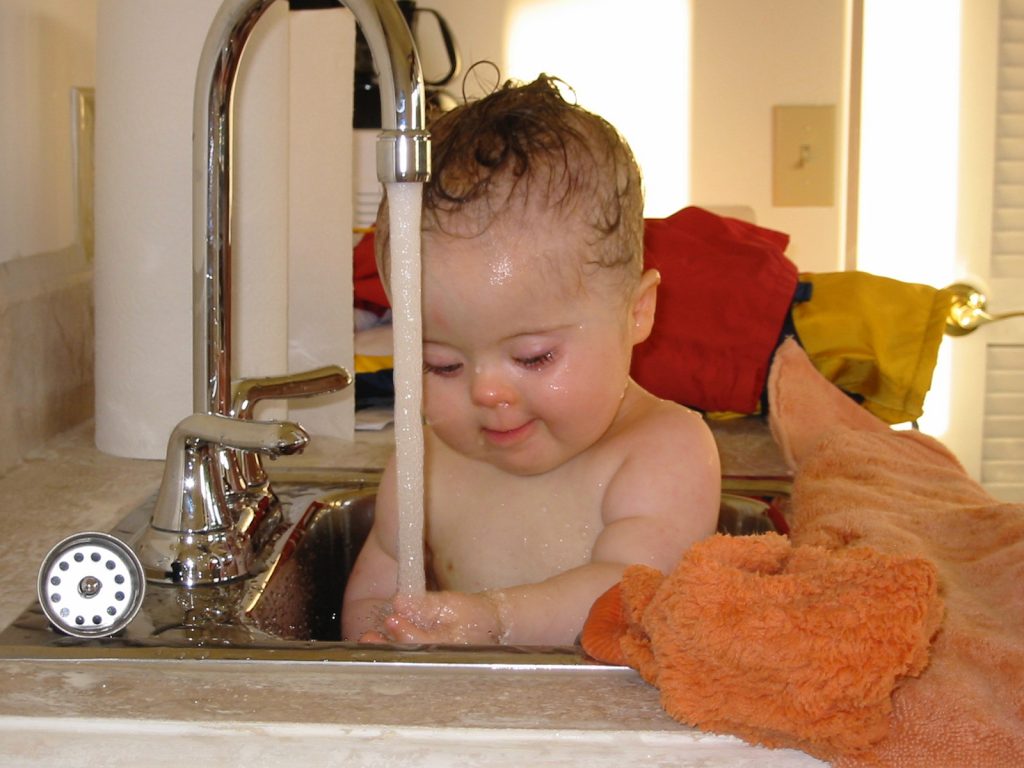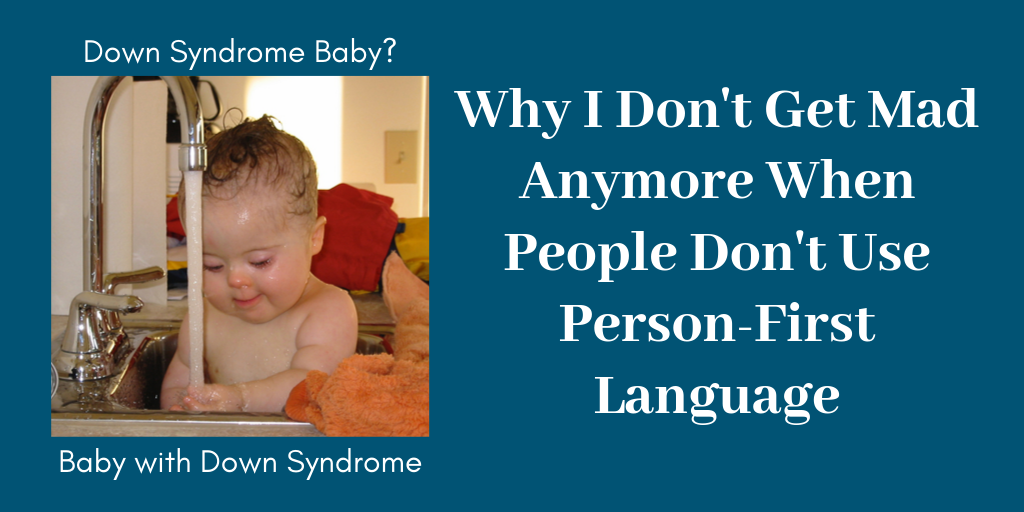Early on in Penny’s life, I learned the concept of ” person-first ” language. At that point, I was calling Penny a “Down syndrome baby,” and the words felt off to me. They felt inaccurate, even slightly offensive, but I couldn’t figure out why. Within weeks, I had read enough about Down syndrome to recognize that many people who had kids with Down syndrome were employing language that emphasized the personhood of their children. They didn’t shy away from the fact that their kids had Down syndrome. But they used language to convey the significance of their kids as kids.

People first. Diagnosis later. That linguistic shift helped me not only to feel comfortable in how I talked about our daughter. It also helped me make a mental shift. It helped me see Penny through the lens of our common humanity first, and only then to name our distinctions.
For a while, I cringed every time I heard someone else use the words “Down syndrome child” (or whatever other variation of this phrase came out). Sometimes I felt offended. Other times I felt critical or even dismissive of the people who said those words. I put people in boxes as a result of their language. Depending on the tone, or on my mood, I wrote people off as ignorant or as biased. Of course, before Penny was born, I would have thought badly of myself.
Over time, I began to recognize the ways that many people who loved Penny used language that didn’t line up with my expectations. I still noticed, but I also became more comfortable with letting our lives speak for Penny’s personhood. I didn’t correct other people’s language anymore. I didn’t cut off relationships because of it.
The shift came not because I became less convinced of the significance of person-first language, but because I grew more confident in Penny’s personhood, in her common humanity. I became more convinced of the existential reality of her being as equal to mine and everyone else we encountered.
I love it when language reflects the reality that Penny is just as much a full human being as any other typical kid. But language itself cannot change the reality of who she is, in her brokenness and her belovedness. I care a lot about language. But remaining in relationships of mutual love and care with other human beings matters far more than policing ” person-first ” and the language around what it means to have Down syndrome.
If you would like to read more about the early years in our journey with a child with Down syndrome check out my memoir A Good and Perfect Gift.
If you haven’t already, please subscribe to my newsletter to receive regular updates and news. You can also follow me on Facebook, Instagram and Twitter.




This Post Has One Comment
Pingback: Three Reasons Why I Don't Use the Term Ableism - Amy Julia Becker